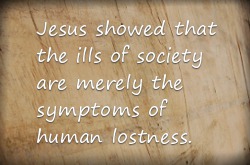The Church and Socialism
CHAPTER VII — THE CHURCH AND SOCIALISM
BY PROFESSOR CHARLES R. ERDMAN, D. D., PRINCETON THEOLOGICAL SEMINARY, PRINCETON., NEW JERSEY
As iron sharpens iron,
one person sharpens another. (Proverbs 27:17)
CHAPTER VII — THE CHURCH AND SOCIALISM
BY PROFESSOR CHARLES R. ERDMAN, D. D., PRINCETON THEOLOGICAL SEMINARY, PRINCETON., NEW JERSEY
“The Fellowship Baptist Church in Sidney, Montana … announced Monday that they plan to withdraw from the [Southern Baptist Convention] ‘due to the ongoing social justice promoting, leftist progressivism, and mission drift away from the Gospel by the denomination’s Ethics & Religious Liberty Commission.’” CPost
“My objection to Wallis was and is that he teaches and many of his followers repeat that support of socialist redistribution policies is synonymous with obedience to the call of Christ to care for the ‘least of these.”’ CPost
An argument that it’s not that simple: “Inequality as such, especially when understood as a reflection of a diversity of talents, dispositions, and gifts, is not an evil, but is rather the source of rich social strength.” Panem and the Polis
Karl Marx and Friedrich Engels provide a helpful case study in the inherent limitations of government. Their landmark publication, The Communist Manifesto (hereafter, TCM), was first printed in 1848, and offered to some the hope they had been desperately seeking. Before asserting the solution, though, the TCM delineated with specificity what its authors believed to be the root problem. All of societal history is ongoing class struggle, with oppressor and oppressed standing against one another. This has taken place throughout four epochs of world history, all representing the struggle between oppressor and oppressed: (1) primitive and communal, (2) slave, (3) feudal, and (4) capitalist. TCM made the case for how a fifth era, a socialist and communist epoch, could right the wrongs of societal history. At the time of TCM’s writing, the world advanced deep into the fourth (capitalist) epoch, an era in which the ills dominating the previous ages were coming to a climax. It was the right time, thought Marx and Engels, for the working class of the world (the proletariat, the oppressed) to unite and cast of the shackles of the ruling class (the bourgeoisie, the oppressors). The goal was the “formation of the proletariat into a class, overthrow of the bourgeois supremacy, conquest of political power by the proletariat.”1
 Read part 1.
Read part 1.
In an earlier article (Considering the Words of Jesus for Social Justice and other Applications), I asserted that Jesus’ conversations during His earthly ministry fit into four general categories: (1) dialogues—usually intended to challenge particular people to repentance (right thinking about who God was and how one could be justified by Him); (2) pre-rejection public discourses about the kingdom—usually intended for broad audiences with a view to promulgating and clarifying the details of the kingdom so that the nation would understand clearly what was at stake; (3) post-rejection public discourse about the kingdom—usually in parable form, in fulfillment of prophecy, and for the purpose of hiding the truth from those who had already rejected; and (4) preparation of the disciples—often including private instruction so that those He had chosen would be prepared for the task of founding and leading the forthcoming church (assembly).
With these contextual keys in view, let’s examine some passages often invoked to advocate for social justice. The goal here is (1) to discover what Jesus was actually advocating, and (2) whether or not government mandated social justice was on His agenda.
Blessed are you who are poor, for yours is the kingdom of God (cf. Luke 6:20 and Matt. 5:3 and John 18:36).
Discussion